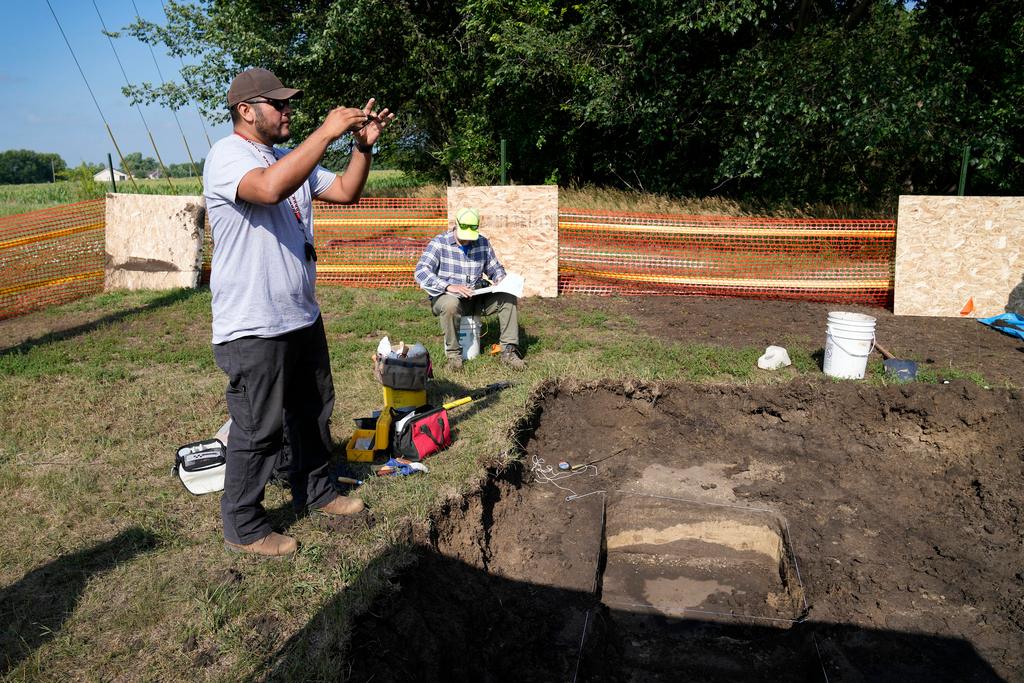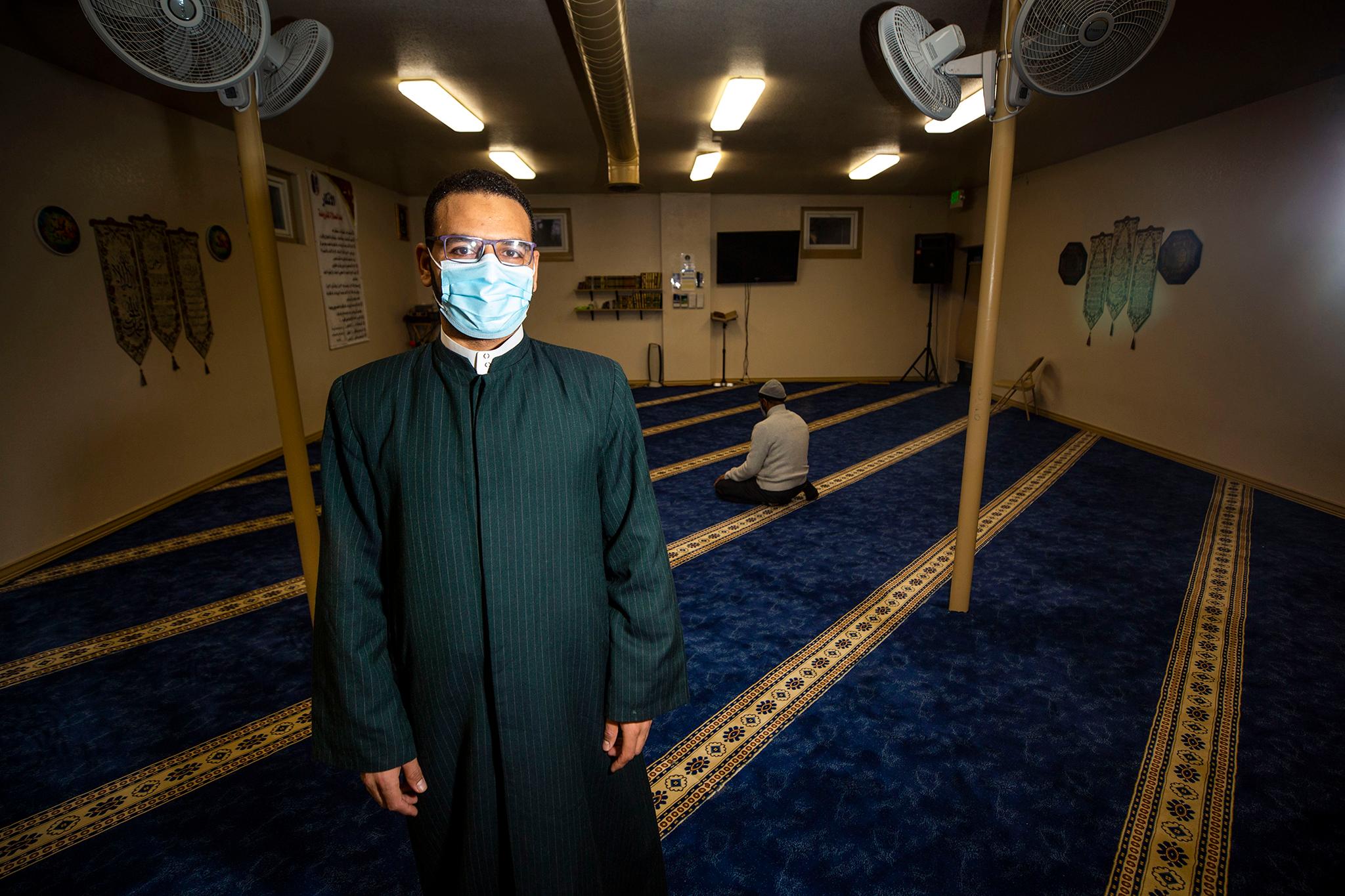
Imam Muhammad Kolila was challenged in many ways over the last year of the pandemic but he says overall, the experience has helped him grow in his faith.
“I'm a person that's struggling,” he said. “I'm here by myself and it's weird, but oh praise to God that actually I'm living that life to connect to people, especially the ones that are actually struggling with the social connection, especially in the light of COVID-19.”
Kolila leads the Masjid Al-Shuhadaa, the Downtown Denver Islamic Center. Like many of his congregants, he’s an immigrant who doesn’t have much family in the United States besides his young daughter.
He said it’s been tough to keep worshippers connected to the mosque even through online avenues. Last April for Ramadan, Kolila encouraged people to hold themselves accountable and attend classes on Whatsapp and Facebook.
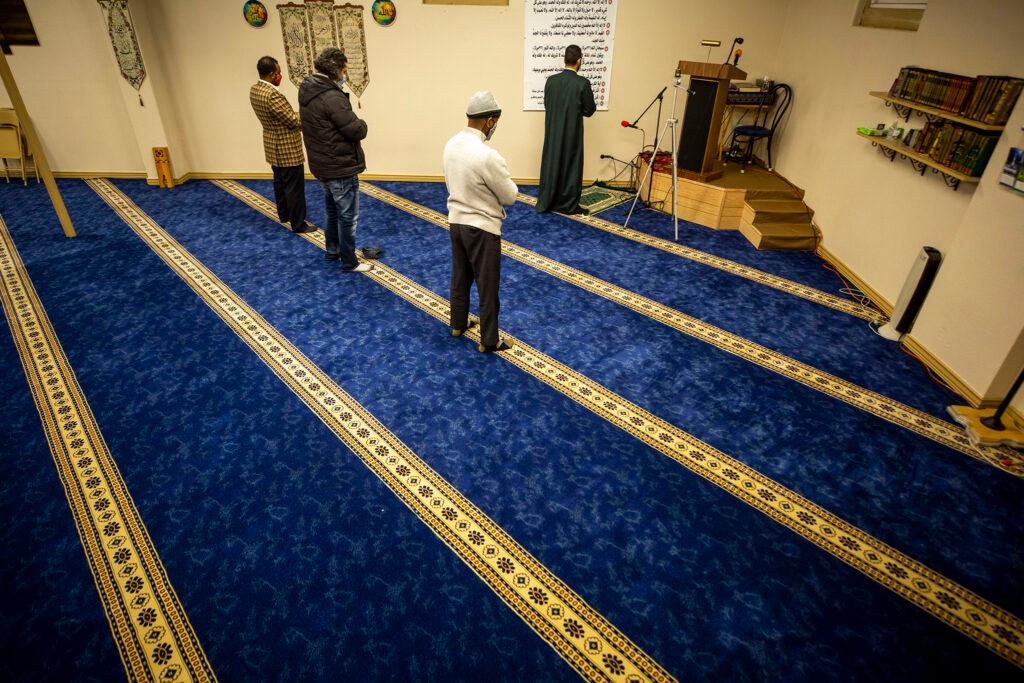
But he’s aware that access to technology varies a lot. The amount of time Kolila spent as a spiritual leader doubled. He used to lead services, provide marriage counseling and teach religious classes but he had to do all of that and more virtually.
The mosque started in-person services in the summer. To keep things safe, they’re smaller, shorter and offered several times a day. It’s not the same, though.
It’s been a balancing act, adapting rituals to follow COVID-19 restrictions, while ensuring they don’t lose their larger meaning. People used to pray shoulder to shoulder, heel to heel. Now they have to worship six feet apart from one another.
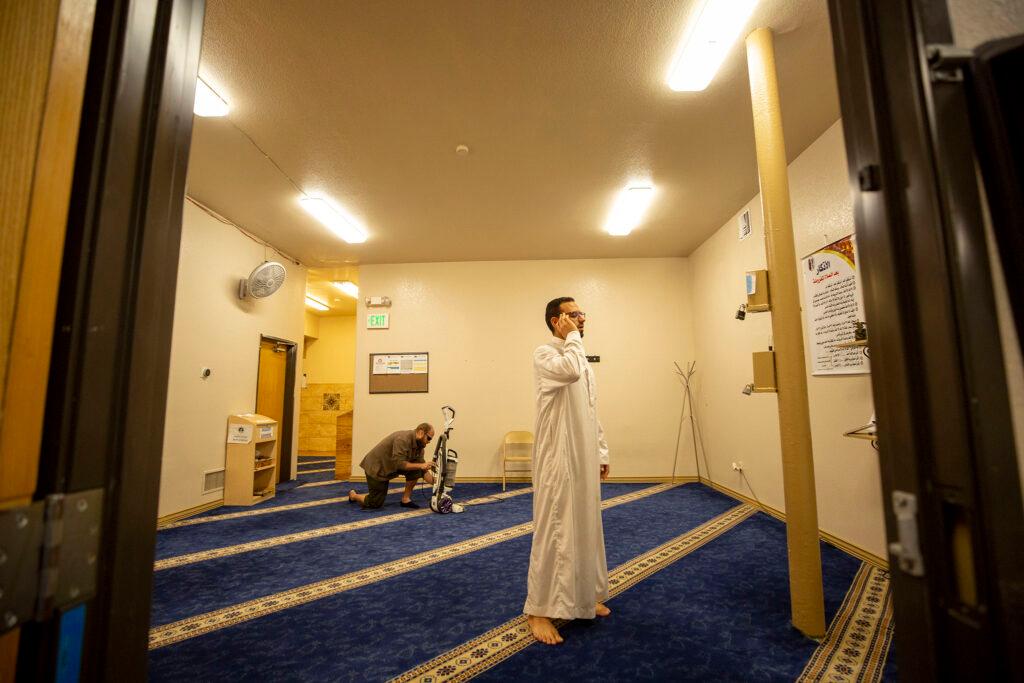
“How can we make it easy for the people, but at the same time, keep the connection with God alive with the people?” Kolila said. “We're not just doing this from our minds, but we follow the traditions that have been around for 14 centuries because we have had pandemics in history and situations close to what's happening now.”
Kolila said he can tell people’s attitudes toward the pandemic have changed over time. At first, they were cautious. But now some have gotten more relaxed. He isn’t sure if that’s because they're tired after a year of being careful or hopeful about vaccines.
It’s important to him that the mosque is a place where people can access trusted information about vaccines, he added.
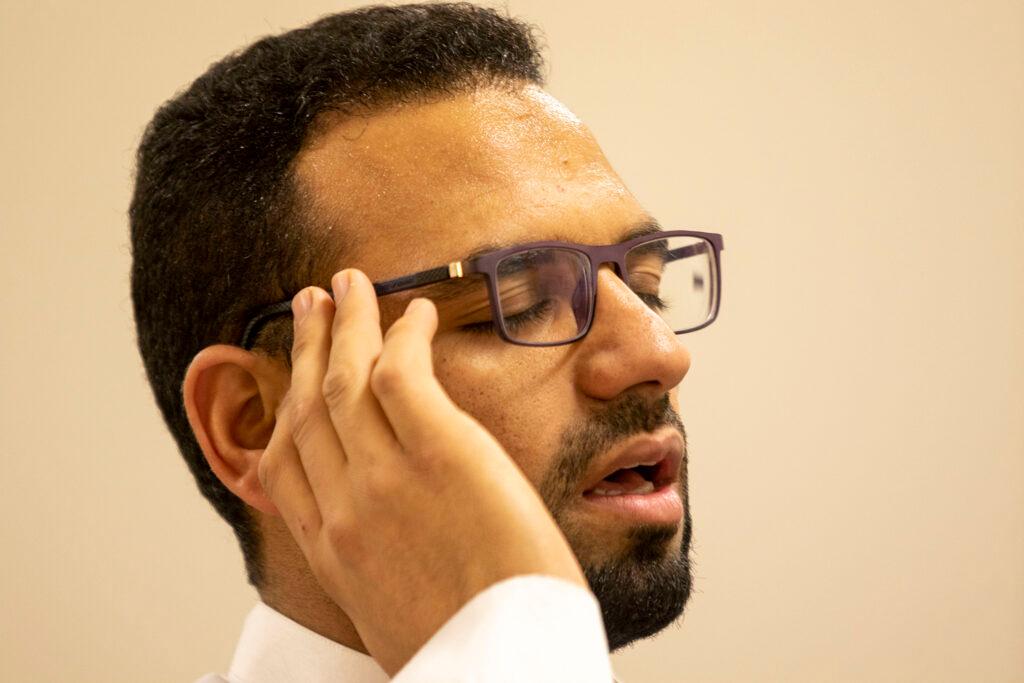
“(In the) Muslim community, science is a big deal,” Kolila said. “As a faith leader, (my role is) to bring that or revive this into people's hearts and minds, pushing them as Muslims: you need to go for the truth always.”
Only about a quarter of worshippers have returned to the Islamic Center in person. Kolila said he still hasn’t seen some attendees who used to come to the Masjid several times a week before the pandemic. It has him worried.
“My biggest struggle that I think the Muslim community might go through is how to connect the people back to mosques,” he said. “It needs a lot of work from us to encourage people to go back to the mosque after everyone gets vaccinated, after everyone is safe.”
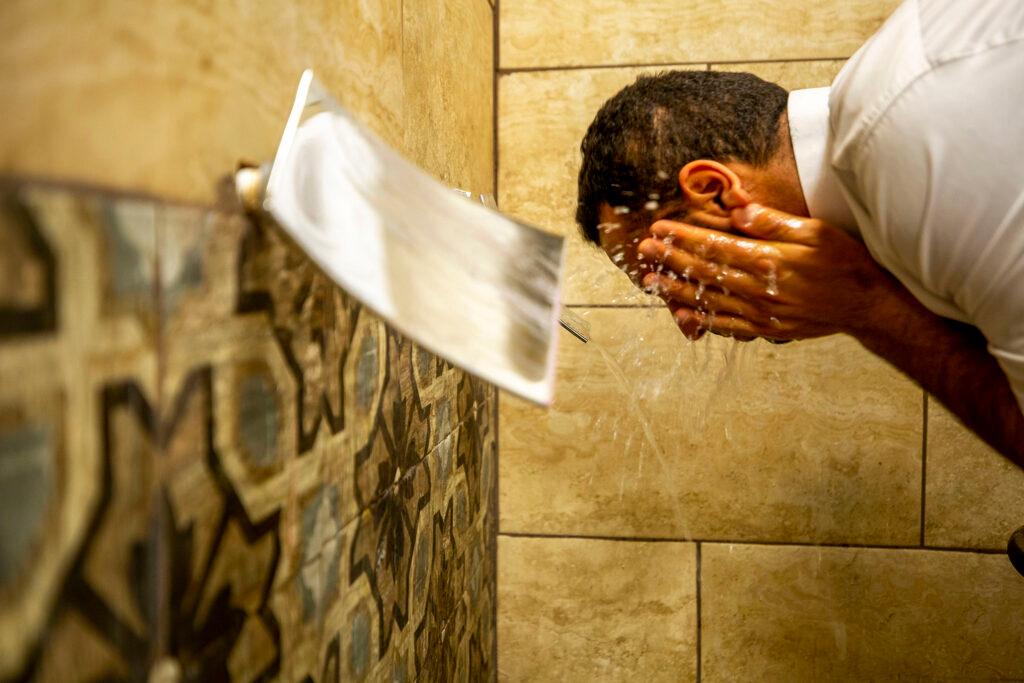
Because fewer people are attending worship, and because of the economic hardship many are dealing with, the Islamic Center’s financial support has dropped over the past year. Some operating costs have been reduced. Kolila said the mosque has been late on rent, too, and he even took three months off unpaid.
But the mosque has continued to try to help those in need. It’s most focused on providing food, especially to immigrants and refugees who may have a language barrier or may struggle to find other resources. The Masjid has given out 5,000 care packages since the beginning of the pandemic.
Despite the financial challenges and other setbacks, Kolila said he’s grateful every day.
“We always say, ‘Alhamdulillah.’ It means ‘Oh praise to God.’ That no matter what’s happening in my life, it's still all praise to God for the beauty of things that I am not aware of and the blessings that I can't count.”







